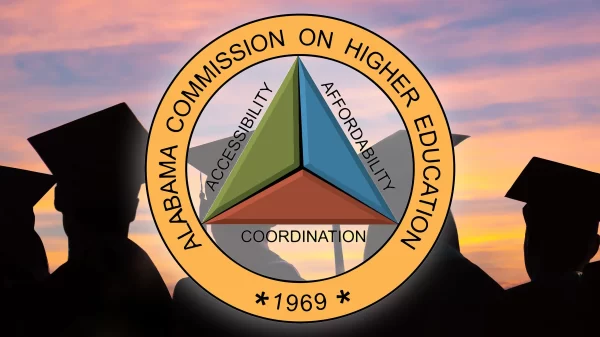In April 2021, the Alabama State Board of Education voted to adopt a new policy that ensures students complete or opt-out of the Free Application for Federal Student Aid (FAFSA). The new rule provides for a very simple to opt out for those who do not want to complete the FAFSA, and local superintendents of education may waive the FAFSA completion criteria on the recommendation of a school’s guidance counselor.
FAFSA is the form colleges use to determine a student’s eligibility for federal financial aid, including Pell grants, work-study programs, and loans. This includes not only an education at traditional four-year colleges and universities, but also other post-secondary education opportunities such as two-year colleges, certificate programs and associate degrees.
Alabama’s 2021 high school graduates left approximately $67.8million in grants on the table because they didn’t complete the FAFSA. This is why Governor Ivey and the Alabama Workforce Council recommended the FAFSA policy change last year to State Superintendent Eric Mackey. We know that most jobs in today’s economy require some education beyond high school, though many good jobs do not require a four-year degree.
By encouraging more students to complete the FAFSA and obtain financial assistance, this policy change is helping Alabama achieve Governor Kay Ivey’s Success Plus goal of adding 500,000 credentialed workers to our workforce by 2025.Governor Ivey’s goal of 500,000 additional credentialed workers will meet the projected needs of Alabama industry, provide a competitive, high-skilled workforce to support new economic growth, and help the state compete for new businesses.
Due to the leadership of Governor Ivey and the Alabama Legislature, the Fiscal Year 2023 budget includes $500,000 for FAFSA completion, which will support the FAFSA completion dashboard managed by the Alabama Commission on Higher Education (ACHE). Shortly after the adoption of the FAFSA completion policy, ACHE partnered with the State Department of Education and Oracle to develop a FAFSA completion portal for Alabama.
According to ACHE’s FAFSA Completion Portal, Of the 48,611seniors in Alabama’s Class of 2022, 58 percent (28,416) have submitted their FASA, and 54 percent (26,347) have completed the FAFSA. High school students submit their FAFSA to the U.S. Department of Education, and ACHE is designated to receive the data on the completed FAFSA forms ACHE can now use the FAFSA completion dashboard to communicate to the high schools when students submit an incomplete FAFSA, so guidance counselors are able to help students fix errors.
According to the National College Attainment Network, Alabama is in second place nationally (just behind Texas) for year-over-year growth in FAFSA completions, since Alabama saw a 24.5 percent increase year-over-year in FAFSA completions. Several school districts saw enormous year-over-year increases: Choctaw County (178.9 percent; Anniston City (152.2 percent) and Perry County (150 percent). Other states that have implemented FAFSA completion policies are ranked in the top five nationally for FAFSA completions, such as Louisiana, Illinois, and Texas.
This success of the FAFSA completion policy reminds us once again that leadership matters, and I would once again like to thank the members of the State Board of Education who voted for this important policy change.




















































